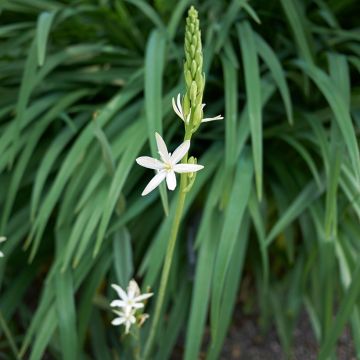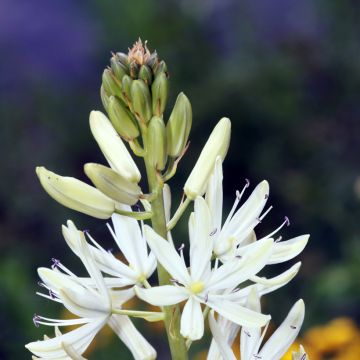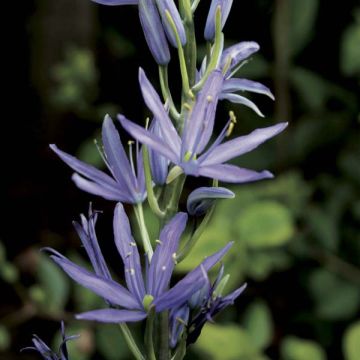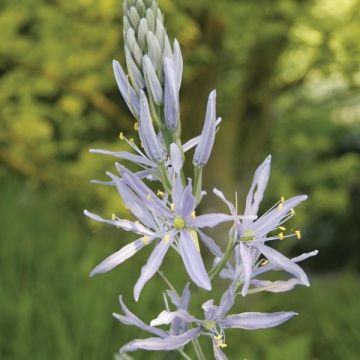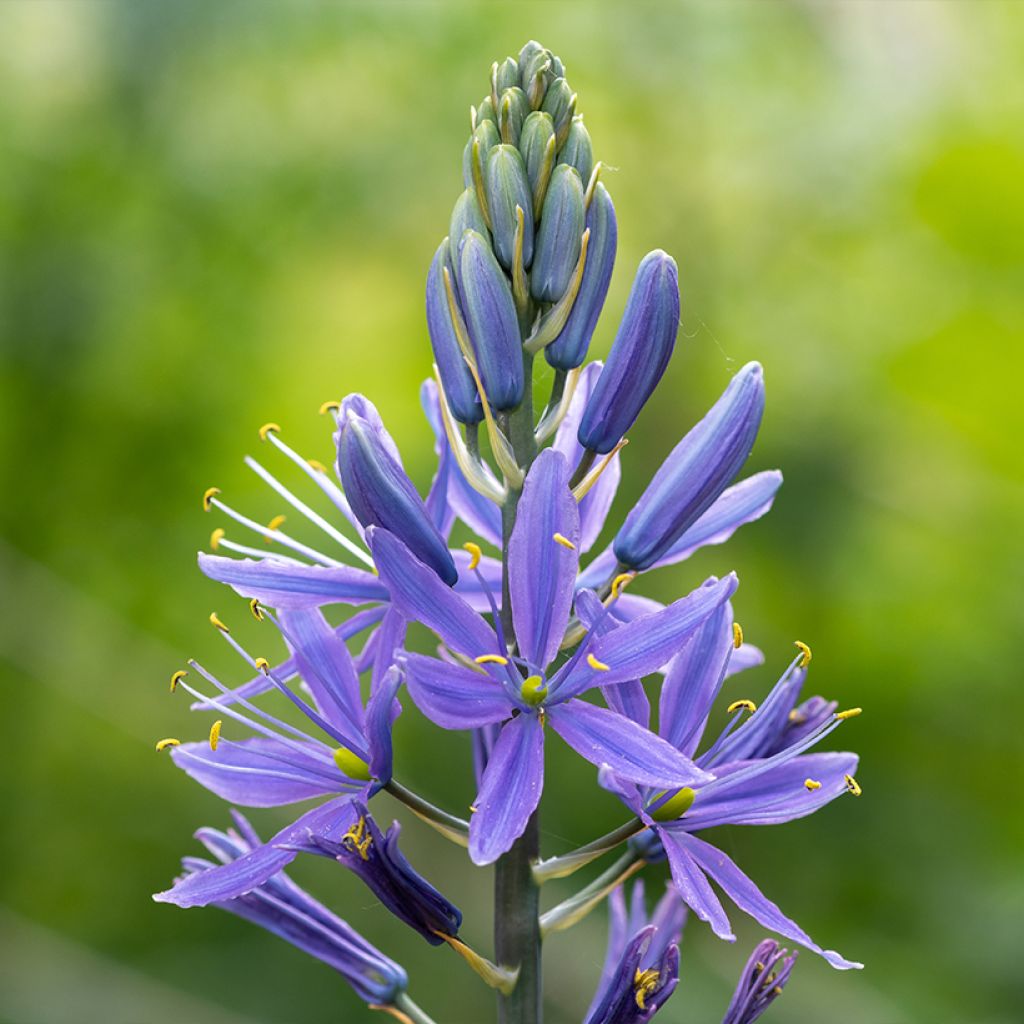

Camassia quamash Blue Melody
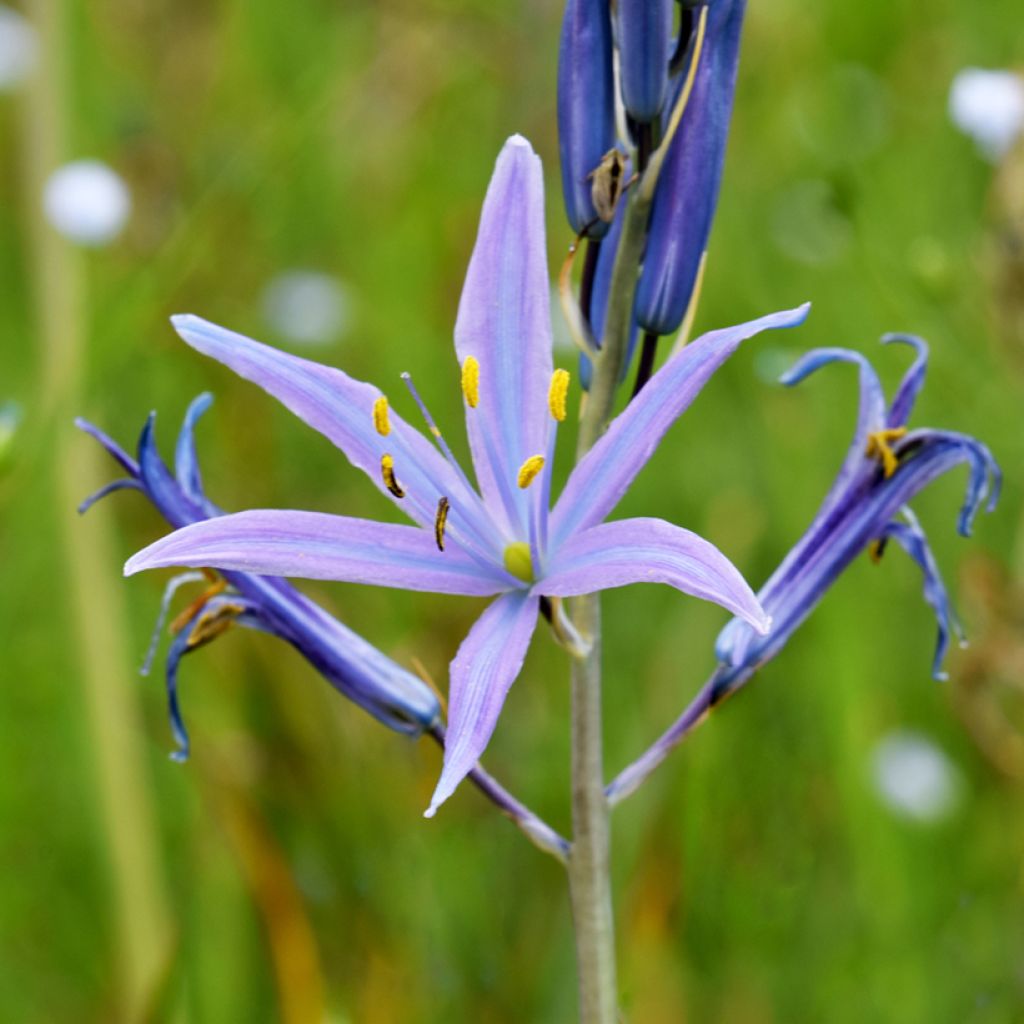

Camassia quamash Blue Melody
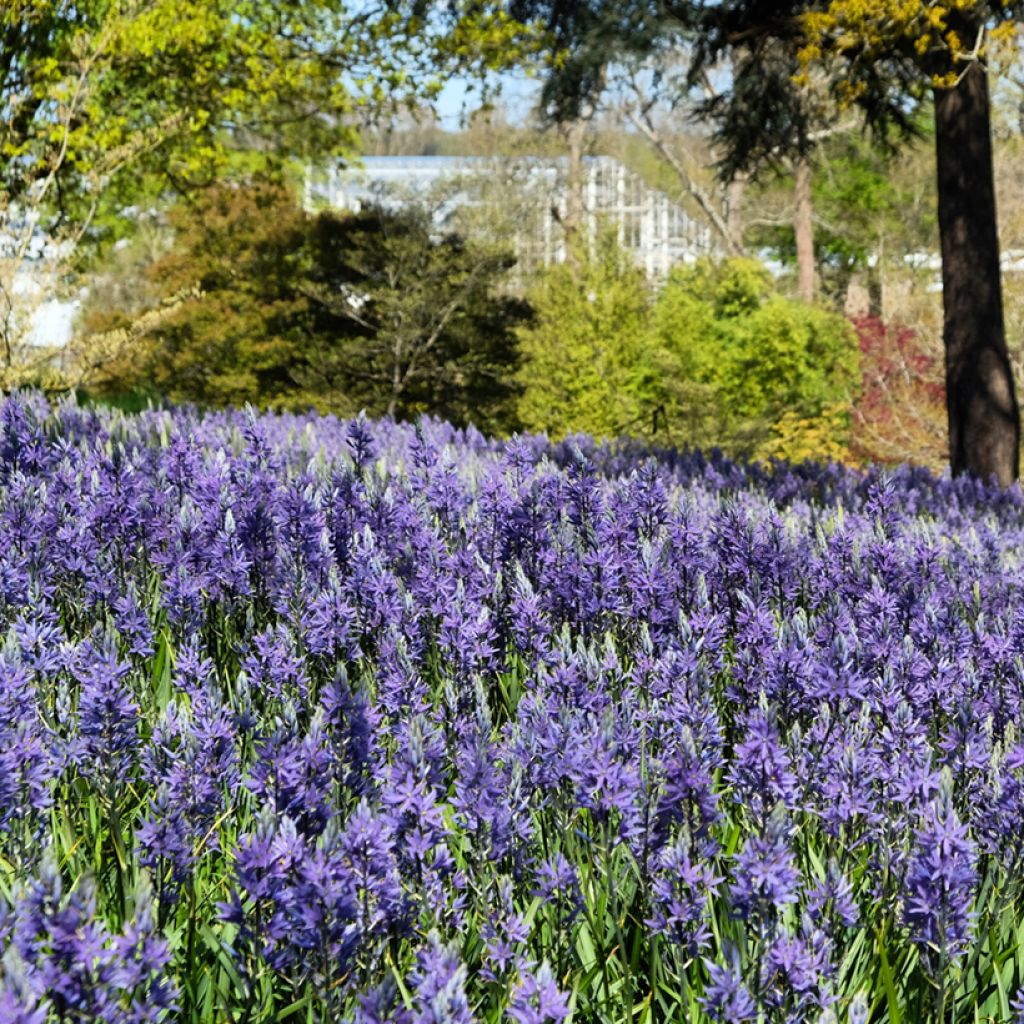

Camassia quamash Blue Melody
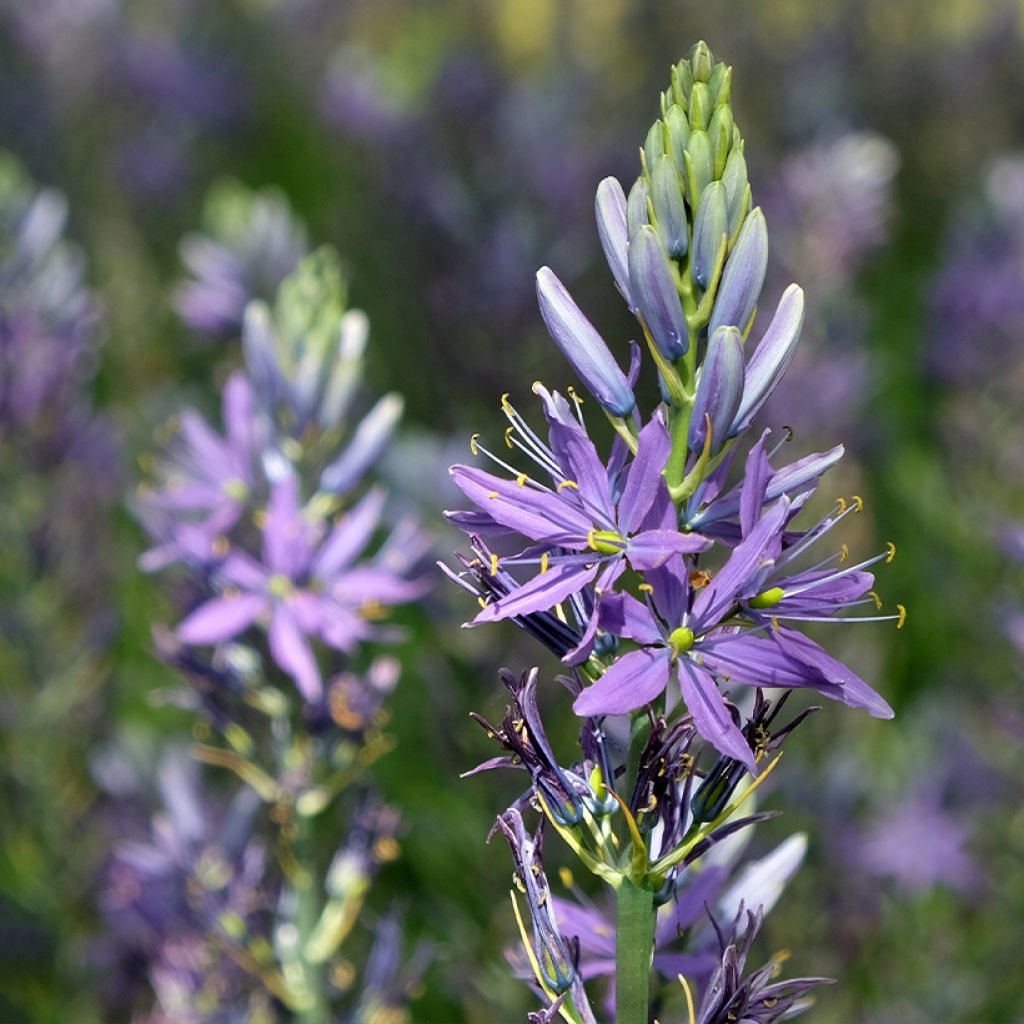

Camassia quamash Blue Melody
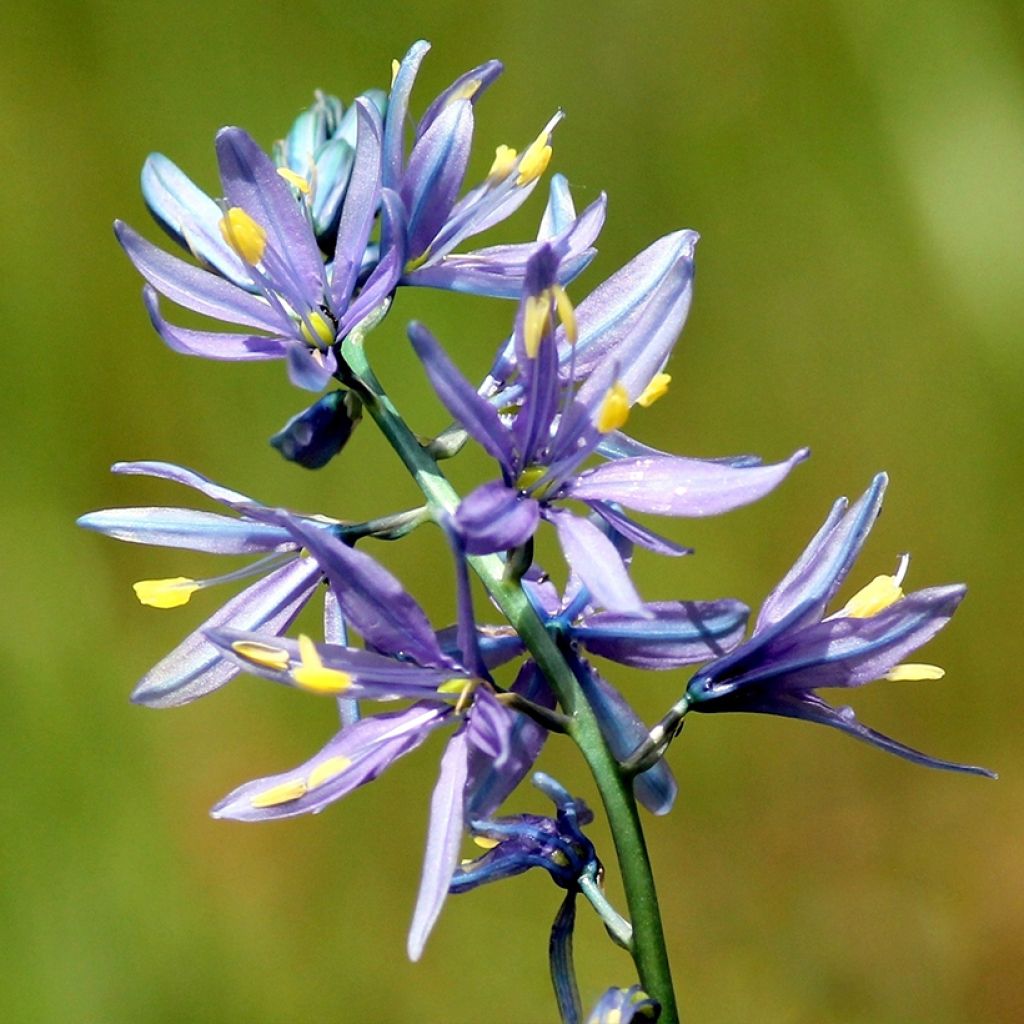

Camassia quamash Blue Melody
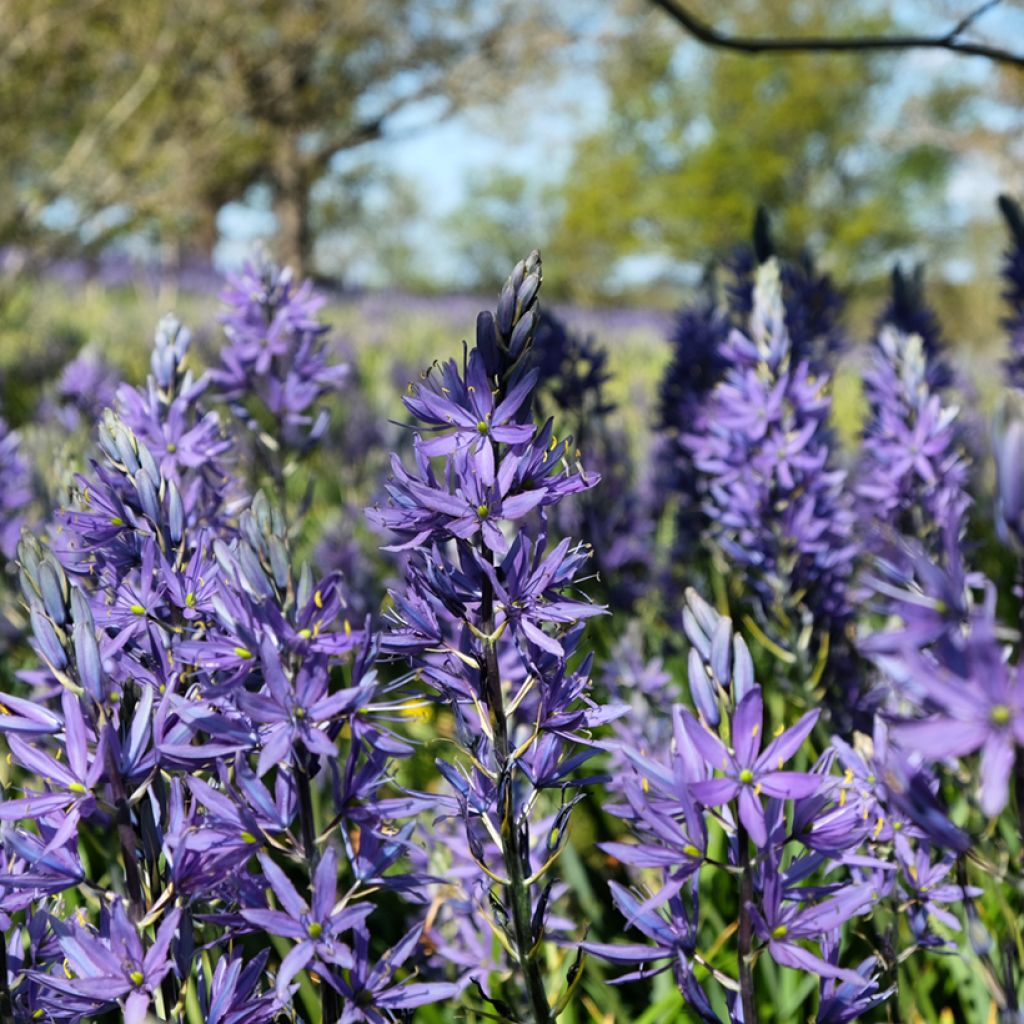

Camassia quamash Blue Melody
Camassia quamash Blue Melody
Camassia quamash Blue Melody
Camas
Hello. Does this camassia (blue melody) actually bloom in January? I read elsewhere that it blooms in May/June. Thank you. Kind regards. Camille
Camille, 31/08/2022
Special offer!
Receive a €20 voucher for any order over €90 (excluding delivery costs, credit notes, and plastic-free options)!
1- Add your favorite plants to your cart.
2- Once you have reached €90, confirm your order (you can even choose the delivery date!).
3- As soon as your order is shipped, you will receive an email containing your voucher code, valid for 3 months (90 days).
Your voucher is unique and can only be used once, for any order with a minimum value of €20, excluding delivery costs.
Can be combined with other current offers, non-divisible and non-refundable.
Why not try an alternative variety in stock?
View all →This plant carries a 6 months recovery warranty
More information
We guarantee the quality of our plants for a full growing cycle, and will replace at our expense any plant that fails to recover under normal climatic and planting conditions.

Would this plant suit my garden?
Set up your Plantfit profile →
Description
Camassia quamash Blue Melody is a variety of camas that is distinguished by its beautiful green foliage marginated with cream yellow, which is decorative even outside of flowering. Its long linear leaves are gathered in a beautiful tuft from which in spring beautiful spikes adorned with bluish mauve stars emerge. It is a very hardy and resistant bulbous plant, easy to grow in any slightly moist soil, in the sun or in partial shade. It naturalises in the sun over time, forming beautiful flowered carpets in a meadow and in borders. The flowers are nectar-bearing and they are very pretty in a vase.
Camassia quamash or C. esculenta "Blue Melody" is a perennial plant of the hyacinth family, just like hyacinths. It eventually forms large generous clumps. Its vegetation emerges from the ground in spring. With rapid growth, the plant reaches a height of 40-45 cm (16-18in) when flowering. Its flower stalks 25-30 cm (10-12in) long appear between late May and early June. They are adorned with flowers with 6 thin petals measuring 2-3 cm (1in) in diameter. The leaves, linear and lanceolate (shaped like a lance), measure from 20 to 50 cm (8 to 20in) long and are bright green in the centre, adorned with yellow to pale yellow margins. They dry up in late summer and are absent in winter.
Native to North America, very cold-resistant, this Camassia Blue Melody returns every year, becoming more vigorous over the years. It can be found in perennial beds, wild gardens, wet meadows as well as near bodies of water. You can also place it as a border in your garden. It is a good flower for bouquets. Its bulbs are not eaten by rodents and can therefore be left in place. Camassia is a robust plant of great ornamental value, which deserves to be included in many gardens. It is extraordinary for taking over from early spring bulbs, and combines beautifully with tulips, peonies and chelones in colourful scenes. In a natural garden, it can be allowed to spread in a flowered meadow.
Furthermore, the bulbs of the Camassia quamash were once consumed by Native American tribes or used to make flour. The taste resembles that of sweet potato when grilled or boiled. However, all other parts of the plant are toxic. The word 'Quamash' means 'sweet' in the Native American language.
Report an error about the product description
Camassia quamash Blue Melody in pictures
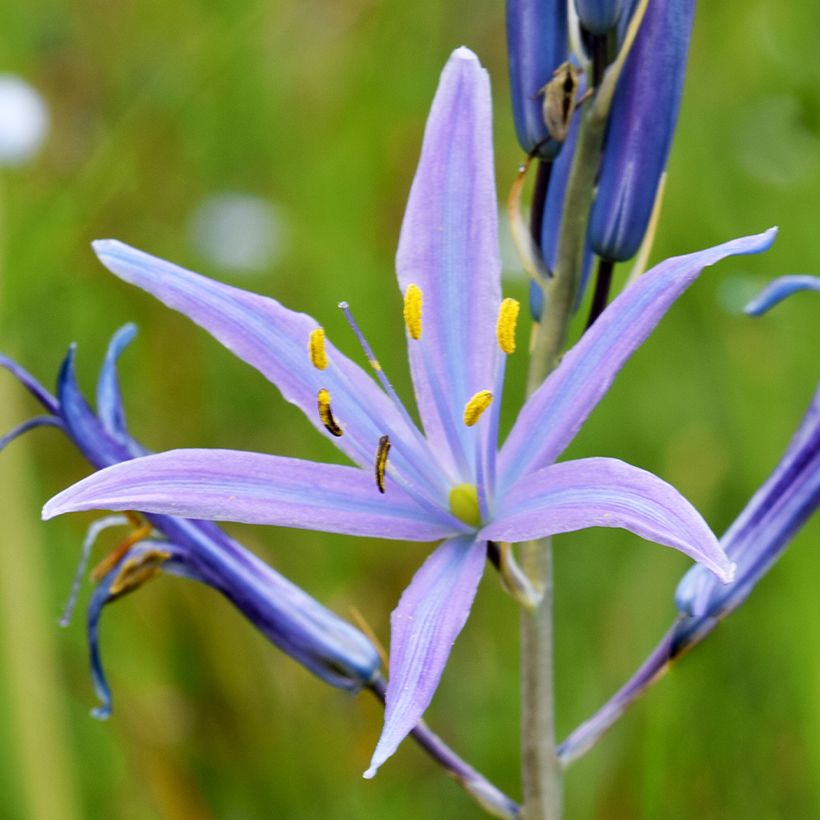

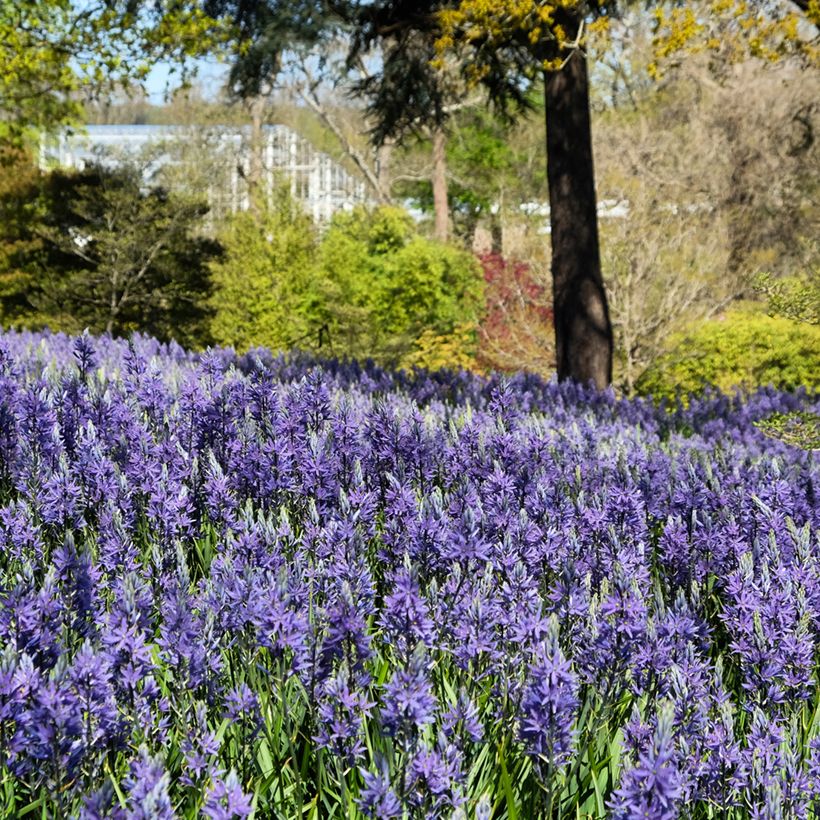

Plant habit
Flowering
Foliage
Botanical data
Camassia
quamash
Blue Melody
Hyacinthaceae
Camas
North America
Planting and care
Camassias are very hardy bulbous plants and easy to grow in any well-drained soil that remains moist in spring and early summer (flowering period). They prefer fertile soils, rich in humus, and can tolerate slightly dry summers, but not arid conditions. Plant them in autumn, in full sun or partial shade, at a depth of 10 cm (4in), spacing the bulbs about 20 cm (8in) apart. Under these conditions, the bulbs will multiply, creating fantastic displays in spring. However, be cautious of poorly drained soils that remain constantly waterlogged, as this can lead to bulb rot during winter.
Planting period
Intended location
Care
-
, onOrder confirmed
Reply from on Promesse de fleurs
Haven't found what you were looking for?
Hardiness is the lowest winter temperature a plant can endure without suffering serious damage or even dying. However, hardiness is affected by location (a sheltered area, such as a patio), protection (winter cover) and soil type (hardiness is improved by well-drained soil).

Photo Sharing Terms & Conditions
In order to encourage gardeners to interact and share their experiences, Promesse de fleurs offers various media enabling content to be uploaded onto its Site - in particular via the ‘Photo sharing’ module.
The User agrees to refrain from:
- Posting any content that is illegal, prejudicial, insulting, racist, inciteful to hatred, revisionist, contrary to public decency, that infringes on privacy or on the privacy rights of third parties, in particular the publicity rights of persons and goods, intellectual property rights, or the right to privacy.
- Submitting content on behalf of a third party;
- Impersonate the identity of a third party and/or publish any personal information about a third party;
In general, the User undertakes to refrain from any unethical behaviour.
All Content (in particular text, comments, files, images, photos, videos, creative works, etc.), which may be subject to property or intellectual property rights, image or other private rights, shall remain the property of the User, subject to the limited rights granted by the terms of the licence granted by Promesse de fleurs as stated below. Users are at liberty to publish or not to publish such Content on the Site, notably via the ‘Photo Sharing’ facility, and accept that this Content shall be made public and freely accessible, notably on the Internet.
Users further acknowledge, undertake to have ,and guarantee that they hold all necessary rights and permissions to publish such material on the Site, in particular with regard to the legislation in force pertaining to any privacy, property, intellectual property, image, or contractual rights, or rights of any other nature. By publishing such Content on the Site, Users acknowledge accepting full liability as publishers of the Content within the meaning of the law, and grant Promesse de fleurs, free of charge, an inclusive, worldwide licence for the said Content for the entire duration of its publication, including all reproduction, representation, up/downloading, displaying, performing, transmission, and storage rights.
Users also grant permission for their name to be linked to the Content and accept that this link may not always be made available.
By engaging in posting material, Users consent to their Content becoming automatically accessible on the Internet, in particular on other sites and/or blogs and/or web pages of the Promesse de fleurs site, including in particular social pages and the Promesse de fleurs catalogue.
Users may secure the removal of entrusted content free of charge by issuing a simple request via our contact form.
The flowering period indicated on our website applies to countries and regions located in USDA zone 8 (France, the United Kingdom, Ireland, the Netherlands, etc.)
It will vary according to where you live:
- In zones 9 to 10 (Italy, Spain, Greece, etc.), flowering will occur about 2 to 4 weeks earlier.
- In zones 6 to 7 (Germany, Poland, Slovenia, and lower mountainous regions), flowering will be delayed by 2 to 3 weeks.
- In zone 5 (Central Europe, Scandinavia), blooming will be delayed by 3 to 5 weeks.
In temperate climates, pruning of spring-flowering shrubs (forsythia, spireas, etc.) should be done just after flowering.
Pruning of summer-flowering shrubs (Indian Lilac, Perovskia, etc.) can be done in winter or spring.
In cold regions as well as with frost-sensitive plants, avoid pruning too early when severe frosts may still occur.
The planting period indicated on our website applies to countries and regions located in USDA zone 8 (France, United Kingdom, Ireland, Netherlands).
It will vary according to where you live:
- In Mediterranean zones (Marseille, Madrid, Milan, etc.), autumn and winter are the best planting periods.
- In continental zones (Strasbourg, Munich, Vienna, etc.), delay planting by 2 to 3 weeks in spring and bring it forward by 2 to 4 weeks in autumn.
- In mountainous regions (the Alps, Pyrenees, Carpathians, etc.), it is best to plant in late spring (May-June) or late summer (August-September).
The harvesting period indicated on our website applies to countries and regions in USDA zone 8 (France, England, Ireland, the Netherlands).
In colder areas (Scandinavia, Poland, Austria...) fruit and vegetable harvests are likely to be delayed by 3-4 weeks.
In warmer areas (Italy, Spain, Greece, etc.), harvesting will probably take place earlier, depending on weather conditions.
The sowing periods indicated on our website apply to countries and regions within USDA Zone 8 (France, UK, Ireland, Netherlands).
In colder areas (Scandinavia, Poland, Austria...), delay any outdoor sowing by 3-4 weeks, or sow under glass.
In warmer climes (Italy, Spain, Greece, etc.), bring outdoor sowing forward by a few weeks.






























